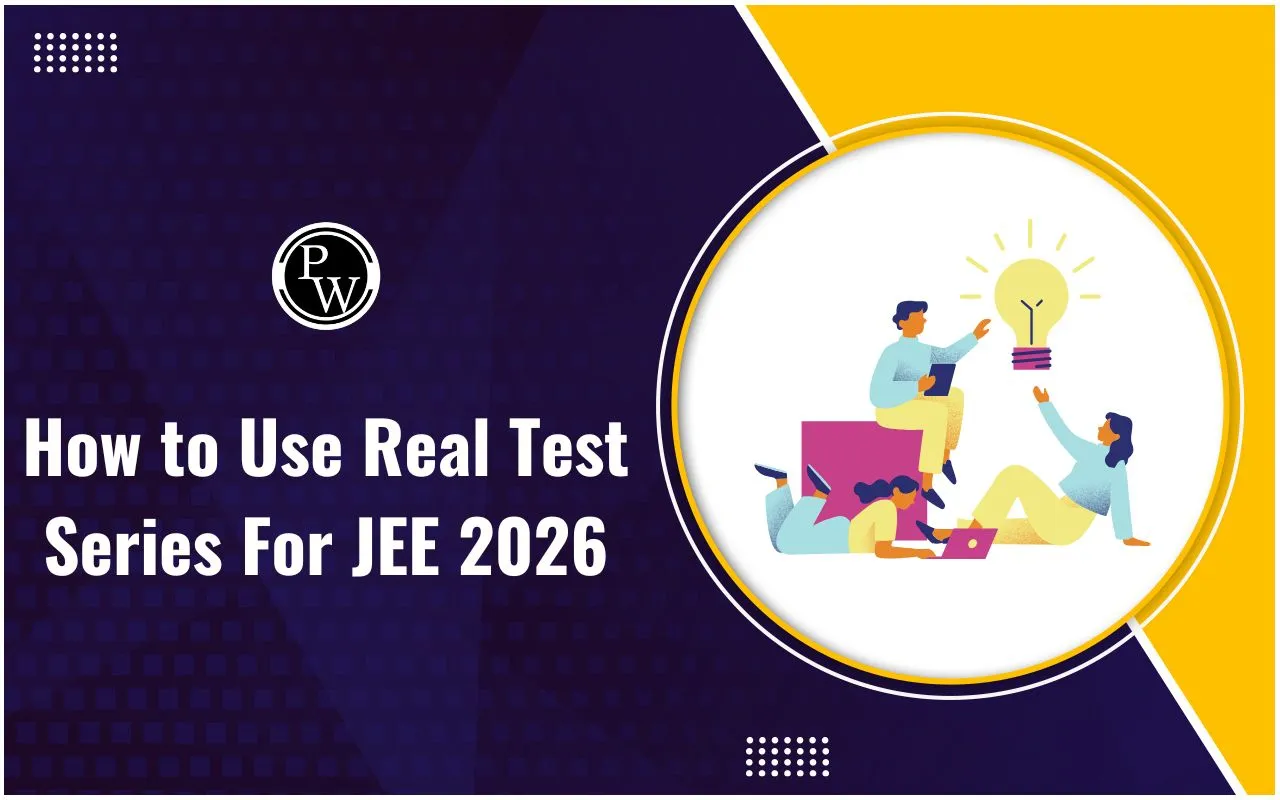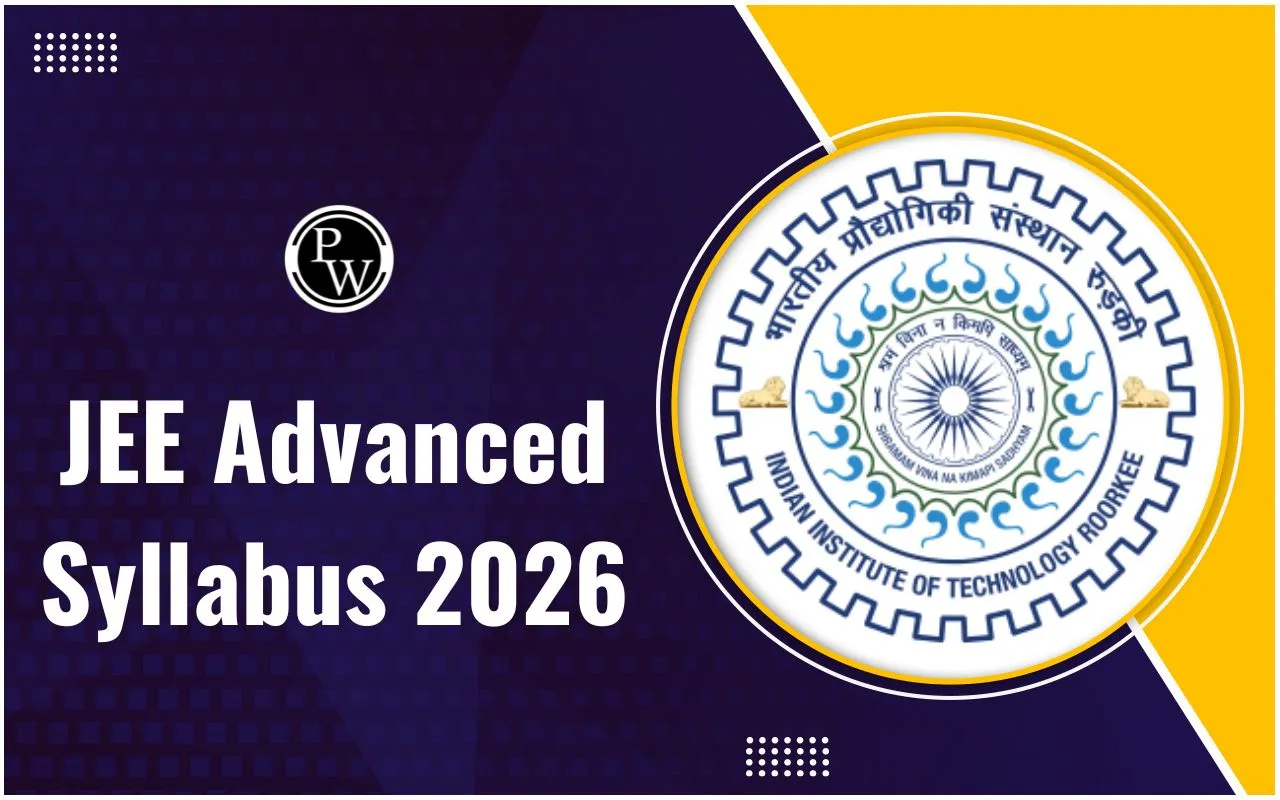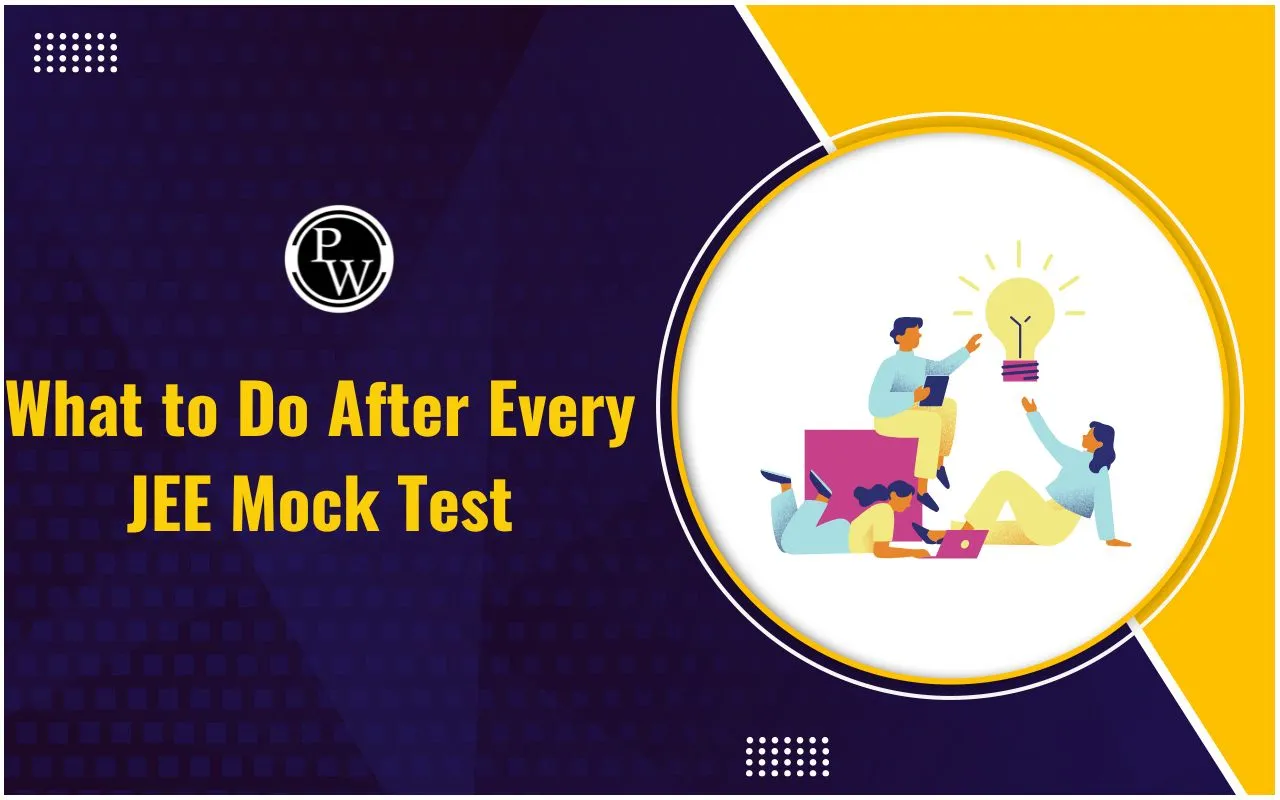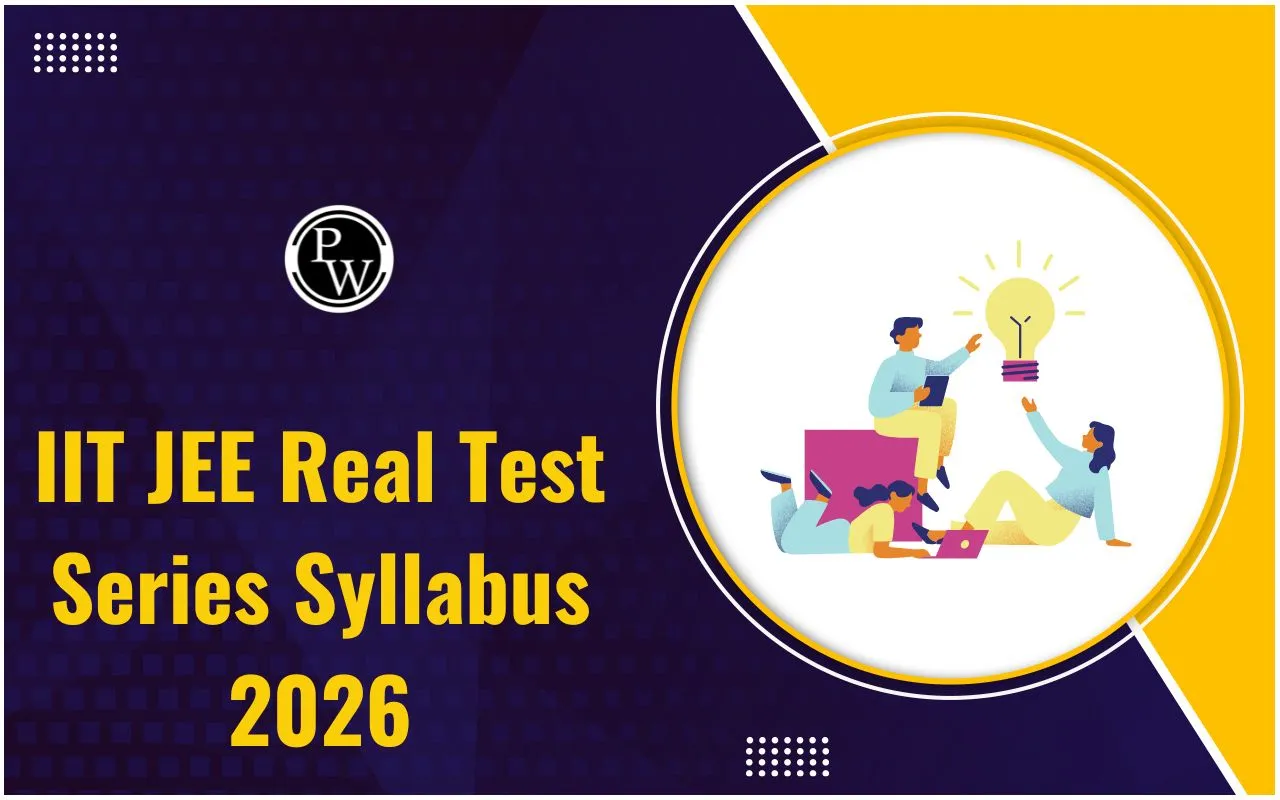
How Many JEE Mock Tests Should You Take in Class 12?: If you're in Class 12 and aiming to crack JEE 2026, one of the most powerful tools in your preparation toolkit is the mock test. These tests do more than just check your knowledge they help you master time management, improve accuracy, boost exam temperament, and reduce stress during the actual exam. But one common question among aspirants is: How many JEE mock tests should you take in Class 12? The answer lies in balancing your test frequency with concept-building and revision. We’ll break down an ideal mock test schedule, explain the difference between chapter-wise and full-length mocks, and guide you on how to make the most of each test attempt.
Why IIT JEE Mock Tests Are Critical for Success
Mock tests are an essential part of JEE preparation as they help students improve time management, boost accuracy, and build confidence under exam-like pressure. Regular mock test practice also enhances your decision-making skills and helps reduce anxiety on the actual exam day.
Also Check : JEE Real Test Series Syllabus PDF
IIT JEE Practice Papers vs Mock Tests
While both mock tests and practice papers are crucial for JEE 2026 preparation, they serve different objectives and are most effective at different stages of your study plan.
When to Use IIT JEE Practice Papers
Practice papers are best suited for the early phase of preparation (April to September). These are usually chapter-wise or topic-wise tests that focus on:
-
Building strong conceptual understanding
-
Improving understanding topic by topic
-
Identifying subject-specific weaknesses
They are ideal for mastering individual topics in Physics, Chemistry, and Mathematics before jumping into full-length exams.
When to Use Full-Length IIT JEE Mock Tests
Mock tests simulate the real JEE exam environment, including:
-
Time-bound conditions (3-hour format)
-
Real exam pattern and difficulty level
-
Pressure and question selection strategies
Mock tests become essential from October onwards, especially during the revision phase, as they help:
-
Improve time management and accuracy
-
Build exam stamina and reduce anxiety
-
Boost confidence and test-taking strategy
Also Check : JEE Real Test Series Schedule PDF
When to Use Each Type of IIT JEE Test
-
April to September: Focus on practice papers to strengthen fundamentals.
-
October onwards: Begin regular mock tests to track overall readiness.
Ideal IIT JEE Mock Test Plan for Class 12 Students
Here’s a month-wise plan for how many mock tests to take:
|
Month-Wise Mock Test Plan |
|||
|
Time Period |
Focus |
Mock Test Frequency |
Purpose |
|
April – Sept 2025 |
Concept building + Practice |
1–2 mock tests/month |
Strengthen fundamentals and assess understanding |
|
Oct – Dec 2025 |
Revision + Full-length tests |
1 full-length test/week |
Build time management, accuracy, and stamina |
|
Jan 2026 |
Final JEE prep (Session 1) |
2–3 full-length tests/week |
Simulate real exam, improve confidence |
|
Feb – Mar 2026 |
Mistake analysis + Boards prep |
1–2 full-length tests/week |
Balance both JEE and board exam prep |
|
April 2026 |
Final JEE prep (Session 2) |
2–3 full-length tests/week |
Maintain momentum |
Weekly vs Daily IIT JEE Mock Tests
Choosing between weekly and daily mock tests depends on your preparation stage. A well-timed approach can maximize efficiency and help you fine-tune your JEE strategy.
Weekly IIT JEE Mock Tests (October to December)
Once your core concepts are in place especially from October onwards, weekly full-length mock tests become essential. These help in:
-
Improving question selection strategy
-
Enhancing exam stamina and 3-hour sitting capacity
-
Providing real-time feedback on your progress
-
Ensuring consistent preparation and measurable growth
Also Check : Real Test Series Exam Centre PDF List
Daily or 2–3 IIT JEE Mock Tests per Week (January & April)
In the final month before JEE Main Session 1 (January) and Session 2 (April), you should increase the frequency to daily or 2–3 mock tests per week. This helps in:
-
Simulating actual exam pressure
-
Improving your focus and staying mentally strong
-
Optimizing last-mile strategy and corrections
|
Weekly vs Daily Mock Tests for JEE |
||
|
Time Period |
Recommended Frequency |
Purpose |
|
Oct – Dec 2025 |
1 full-length mock/week |
Build exam stamina, time management, and accuracy |
|
Jan & April 2026 |
2–3 full-length mocks/week or more |
Simulate pressure, refine strategy, and polish exam performance |
Balancing Board Exams with IIT JEE Mock Tests
Preparing for both JEE and board exams can feel Difficult to handle, but with a well-planned and structured mock test strategy, you can manage both efficiently without burnout.
April to September: Build the Foundation
-
Focus on strengthening core concepts common to both JEE and board syllabi.
-
Attempt 1–2 chapter-wise or topic-wise mock tests per month to improve understanding and monitor progress.
-
Prioritize conceptual clarity and subject-wise revision during this phase.
October to December: Revision and Strategy
-
Begin full-length JEE mock tests, one per week under timed conditions.
-
Simultaneously revise the board syllabus in parallel.
-
This stage plays a key role in developing exam mindset, managing time efficiently, and sharpening problem-solving abilities.
January: Final Push Before JEE Session 1
-
Increase frequency to 2–3 full mock tests per week to simulate real exam conditions.
-
Analyze each test thoroughly and fine-tune your question selection strategy and timing.
February to March: Board Exams + Weak Area Analysis
-
While preparing for board exams, continue with 1–2 mock tests per week to maintain JEE momentum.
-
Focus on revising weaker topics identified from mock test analysis.
April: Prepare for JEE Session 2
-
Ramp up your mock test practice again to 2–3 tests per week.
-
Revise tricky concepts and maintain exam-day rhythm.
Subject-Wise IIT JEE Mock Test Plan
To maximize your JEE 2026 preparation, it’s important to have a separate mock test strategy for Physics, Chemistry, and Mathematics. Each subject demands a different approach and focus.
|
Physics, Chemistry, Mathematics Focus Areas |
|
|
Subject |
Mock Test Focus Areas |
|
Physics |
Focus on conceptual clarity and numerical problem-solving. Practice derivations too. |
|
Chemistry |
Balance between Physical, Organic, and Inorganic. Practice conceptual and memory-based questions. |
|
Maths |
Emphasize formula-based and application-focused problems. Improve calculation speed. |
Time Management Tips for Mock Tests
Managing time in mock tests is as important as solving questions correctly. Follow these tips during full-length tests:
-
Don’t get stuck on one tough question for too long
-
Prioritize easy and scoring questions first
-
Aim to allocate approx 1 hour per subject
-
Reserve the final 15–20 minutes to revisit unanswered questions and review your responses.
IIT JEE Mock Test Routine: Class 12 vs Droppers
To prepare effectively for JEE 2026, understanding the right mock test routine is essential, especially since the ideal schedule differs for Class 12 students and droppers.
|
Mock Test Routine: Class 12 vs Droppers |
|||||
|
Category |
April–Sept |
Oct–Dec |
Jan (Before Session 1) |
Feb–Mar |
April (Before Session 2) |
|
Class 12 |
1–2 mocks/month (topic-wise) |
1 full mock/week |
2–3 full mocks/week |
1–2 full mocks/week |
2–3 full mocks/week |
|
Droppers |
1 full mock/week |
1–2 full mocks/week |
2–3 full mocks/week |
1–2 full mocks/week |
2–3 full mocks/week |
Mock Test Highlights for Class 12 & Droppers:
- Class 12 Students: Aim for 25–30 full-length mocks throughout the year. Focus on concept-building in the first half and balance mock tests with board preparation in the second half.
- Droppers: Can attempt 35–40+ mocks, since they’ve already covered the syllabus. Focus more on test analysis, speed improvement, and refining strategy.
How to Analyze IIT JEE Mock Tests Effectively
Taking mock tests is important, but real improvement comes from analyzing them effectively. Here’s how to get the most value out of each mock test you take for IIT JEE 2026:
Why Analyze Your IIT JEE Mock Tests?
Mock tests aren’t just practice, they’re a mirror of your preparation. Proper analysis helps identify:
-
Wrong answers: Was it a conceptual mistake, silly error, or time pressure?
-
Unattempted questions: Were they due to lack of time or confidence?
-
Time spent per section: Did you spend too long on one subject?
What to Track After Each Test
-
Accuracy % vs total attempts
-
Skipped or left-out questions
-
Topics where errors repeat
-
Speed and performance trend
Maintain a Mistake Notebook with:
-
Common silly mistakes
-
Concepts that need revision
-
Difficult or time-consuming questions
Learning from Mistakes
-
Revisit and relearn the topic where the mistake occurred
-
Solve similar problems to reinforce understanding
-
Make note of common traps (e.g. unit conversion, misreading options)
Mock Test-Based Revision Plan for IIT JEE 2026
To make the most of your mock tests, follow this month-wise revision strategy that aligns with your JEE preparation phases from concept building to final exam readiness.
|
Mock Test-Based Revision Strategy for IIT JEE 2026 |
|
|
Phase |
Focus |
|
April – Sept 2025 |
- Chapter-wise & topic-wise mocks - 1–2 full mocks/month |
|
Oct – Dec 2025 |
- Weekly full-length mocks - Analyze & revise weak areas |
|
Jan 2026 |
- 2–3 full mocks/week under timed conditions - Refine speed & strategy |
|
Feb – Mar 2026 |
- Analyze Session 1 mistakes - Revise weak topics - 1–2 mocks/week |
|
April 2026 |
- 2–3 mocks/week - Final revision & full-length practice |
IIT JEE Mock Test Score Improvement Tips
Improving your IIT JEE mock test scores and ultimately your rank requires more than just solving test papers. It demands a strategic and consistent approach that blends smart practice, detailed analysis, and continuous improvement.
Key Strategies to Improve Your Mock Test Score:
-
Analyze Every Test Thoroughly
-
Review every mistake: concept confusion, silly mistake, or poor time management?
-
Identify weak chapters, recurring errors, and lengthy questions
-
Master Question Selection
-
Start with easy and familiar questions
-
Come back to tricky ones later
-
Practice in Timed Conditions
-
Use a timer; simulate real exam settings
-
Finish within 3 hours with good accuracy
-
Strengthen Weak Concepts
-
Revisit low-scoring chapters
-
Practice similar problems
-
Track Your Progress
-
Monitor score and accuracy trends
-
Set weekly score or error-reduction goals
IIT JEE Mock Test Series for Class 12 by Physics Wallah
JEE Mock Test Series for Class 12 by Physics Wallah is designed to align with the latest syllabus and exam pattern, helping students strengthen their preparation for JEE Main and Advanced 2026. This comprehensive test series includes chapter-wise practice papers, full-length mock tests, and the All India Test Series (AITS) all tailored to the Class 12 curriculum. One of the biggest advantages of this series is its inclusion of real exam pattern mock tests, which closely simulate the actual IIT JEE environment in terms of difficulty level, time constraints, and question style.
Available in both online and offline formats across 181+ test centres in India, these mocks allow students to practice under strict exam-like conditions. Regular practice through this series helps improve speed, accuracy, time management, and significantly reduces exam-day stress, making aspirants more confident and better prepared for the final exam.
How Many Mock Tests Should You Take for IIT JEE Main 2026?
There is no magic number of mock tests that guarantees success in JEE Main, but consistent and strategic practice is key. Most IIT JEE toppers and educators agree that attempting around 35–40 well-analyzed full-length mock tests before the final exam significantly boosts performance. These tests should be distributed across your preparation timeline:
-
April to September 2025: Focus on building concepts with 1–2 full mock tests per month, along with regular chapter-wise and topic-wise tests.
-
October to December 2025: Shift to taking one full-length mock test per week to improve time management, accuracy, and exam temperament.
-
January and April 2026: Increase the frequency to 2–3 mock tests per week to simulate real exam conditions and refine your strategy.
If you’re starting late or still gaining confidence, even 25–30 well-reviewed mock tests can make a noticeable difference, provided each one is followed by a detailed performance analysis. However, attempting more than 50–60 full-length tests without proper review can lead to burnout and may not offer additional benefits. The goal isn’t just quantity, but quality revision and smart learning from mistakes.
JEE Main vs Advanced Mock Tests
Both JEE Main and JEE Advanced mock tests play a crucial role in your exam preparation. However, they differ in difficulty level, focus area, and exam strategy.
|
JEE Main vs Advanced Mock Tests |
||
|
Aspect |
JEE Main Mock Tests |
JEE Advanced Mock Tests |
|
Syllabus Base |
NCERT-based |
Advanced-level concepts beyond NCERT |
|
Difficulty Level |
Moderate |
High – tricky and conceptual |
|
Focus Areas |
Speed, accuracy, time management |
Deep problem-solving, logic, analytical thinking |
|
Question Style |
Mostly direct and application-based |
Multi-concept, subjective logic-based problems |
|
Exam Pattern Familiarity |
Helps build confidence for JEE Main pattern |
Prepares for unexpected formats and complex logic |
|
Best Time to Start |
During concept-building phase |
After full syllabus is covered and revised |
Previous Year Papers vs IIT JEE Mock Tests
Both IIT JEE Previous Year Papers (PYQs) and Mock Tests are essential resources in your JEE preparation journey, but each serves a different purpose. Here's how they compare:
|
Previous Year Papers vs Mock Tests |
||
|
Feature |
Previous Year Papers (PYQs) |
Mock Tests |
|
Purpose |
Understand actual exam trend & difficulty |
Simulate real exam conditions |
|
Focus |
Concept revision & pattern recognition |
Time management, speed, and accuracy |
|
Question Type |
Based on past JEE papers |
Reflects current trends and difficulty |
|
Ideal For |
Familiarity with exam style and repeated topics |
Performance tracking & pressure handling |
|
When to Use |
After completing a topic or during revision |
Throughout preparation, especially Oct–April |
Strategy to Use IIT JEE Previous Papers and Mock Tests Effectively
To get the maximum benefit from both previous year papers and mock tests, follow this smart preparation strategy throughout your IIT JEE 2026 journey:
-
April–September:
-
Use PYQs topic-wise to understand frequently asked questions.
-
Begin with chapter-wise practice papers to build foundation.
-
October–January:
-
Start full mock tests to build exam stamina and strategy.
-
Continue solving PYQs to revise important concepts.
-
Last 2 Months (Feb–April):
-
Solve full-length mock tests under timed conditions.
-
Revise with PYQs to improve scoring topics and familiar patterns.
Percentile Prediction from IIT JEE Mock Tests
Mock tests are not just for practice they also help you estimate where you stand in the competitive landscape. When taken seriously under timed, exam-like conditions, they offer valuable insights into:
-
Your current level of preparation
-
Accuracy and speed
-
Weak areas needing improvement
-
A rough idea of your expected percentile in JEE
How to Predict Percentile from IIT JEE Mocks?
While no mock test can predict your JEE percentile with 100% accuracy (since actual exam difficulty and peer competition vary), consistent performance trends can offer a reliable estimate.
|
Approximate Percentile Prediction Based on Mock Test Scores |
|
|
Mock Test Score (Moderate Difficulty) |
Estimated JEE Percentile |
|
180+ out of 300 |
Top 10–15% |
|
200+ |
Top 7–10% |
|
220+ |
Top 5% or better |
Should I Take Mock Tests Daily for IIT JEE?
Yes, taking mock tests daily for IIT JEE can be highly beneficial but only if done strategically. Daily mock tests are most effective during the final stages of preparation, especially in the last 2–3 months before the exam. At this point, you’ve already covered the syllabus and are focusing on revision, accuracy, and time management. Daily practice helps simulate the real exam environment, improve your speed, reduce silly mistakes, and boost your confidence.
However, simply attempting mock tests without analysing them is not helpful. After each test, it's crucial to review your performance, identify weak areas, and work on them. If you’re still building concepts, taking 1–2 mock tests per week while focusing more on topic-wise practice is a smarter approach.
To help aspirants prepare effectively for the JEE Main 2026 exam, we’ve provided a set of useful resources. Click on the links below to explore eligibility criteria, syllabus, exam pattern, and chapter-wise weightage.
|
JEE Main 2026 Important Links |
|
How Many JEE Mock Tests Should You Take in Class 12 FAQs
How many mock tests should a Class 12 student take for IIT JEE 2026?
When should I start giving full-length IIT JEE mock tests?
Are weekly mock tests enough for IIT JEE?
What is the difference between IIT JEE mock tests and practice papers?
Should I take mock tests daily before the exam?










